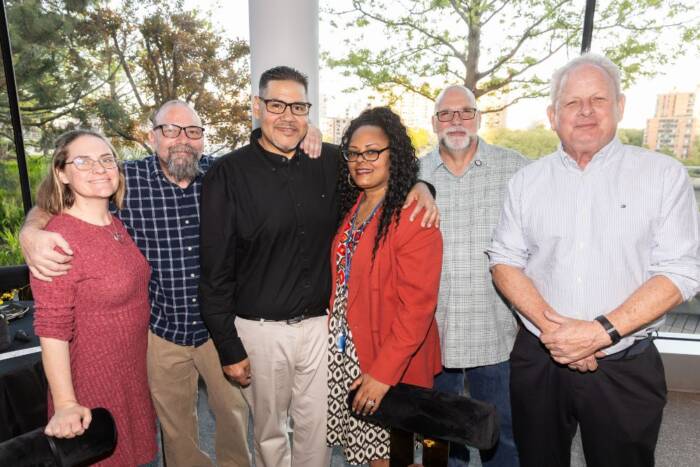David Allis awarded $1 million grant from Starr Cancer Consortium
C. David Allis(opens in new window), Joy and Jack Fishman Professor and head of the Laboratory of Chromatin Biology and Epigenetics(opens in new window) at Rockefeller, has been awarded a $1 million grant from the Starr Cancer Consortium. Allis leads one of five cancer research teams from the New York City based members of the consortium — Memorial Sloan-Kettering Cancer Center, The Rockefeller University and Weill Cornell Medical College — that are winners of $5 million in grant awards from The Starr Foundation’s Sixth Starr Cancer Consortium Grant Competition.
 The Starr Cancer Consortium(opens in new window), established in 2006 through a gift from The Starr Foundation, works to advance research in new ways and impact the understanding, diagnosis, prevention and treatment of cancer. The consortium is a collaborative framework among five institutions which includes, along with the New York institutions, The Broad Institute of MIT and Harvard and Cold Spring Harbor Laboratory.
The Starr Cancer Consortium(opens in new window), established in 2006 through a gift from The Starr Foundation, works to advance research in new ways and impact the understanding, diagnosis, prevention and treatment of cancer. The consortium is a collaborative framework among five institutions which includes, along with the New York institutions, The Broad Institute of MIT and Harvard and Cold Spring Harbor Laboratory.
This year, the Sixth Starr Cancer Consortium Grant Competition received 27 grant applications and selected five collaborative cancer research projects as winners. Each of the five research projects was awarded a two-year grant totaling $1 million.
“We are extremely grateful to The Starr Foundation for its generous and continued support of collaborative biomedical research in New York City,” says Marc Tessier-Lavigne(opens in new window), president of The Rockefeller University. “By harnessing the talent of the city’s leading scientific lights across multiple institutions, The Starr Cancer Consortium is poised to make progress in our understanding of the origins of cancer and, ultimately, its treatment.”
Allis is the principal investigator for a research project that aims to investigate how histone H3.3 mutations affect the epigenetic landscape to mediate the development of pediatric gliomas, a type of brain tumor. The goal of the study is to generate novel insight about pediatric gliomagenesis, streamline clinical translation of pediatric glioma treatment and identify novel therapeutic strategies. Co-principal investigators include Cameron Brennan, Yu Chen, Ping Chi and Viviane Tabar from Memorial Sloan-Kettering and Jeffrey Greenfield from Weill Cornell.
“We congratulate the winners(opens in new window) of The Starr Foundation’s Sixth Starr Cancer Consortium Grant Competition,” says Florence A. Davis, president of The Starr Foundation. “This Consortium has launched a number of innovative, collaborative cancer research projects that are already linking discoveries in the laboratory to the clinic. Better patient outcomes are our ultimate goal and we see progress every year.”
“We believe these five novel, collaborative research projects have the potential to deepen our understanding of cancers and transform detection and treatment,” says Maurice R. Greenberg, chairman of The Starr Foundation’s Board of Directors. “Our dedicated support of these novel research teams fosters collaboration to gain a deeper understanding of the molecular underpinnings of each diverse cancer and accelerate research to prevent or cure the disease.”
The Starr Cancer Consortium is intended largely to support critical mass, collaborative projects with the potential for transforming impact on the understanding and treatment of cancer, through the development and systematic application of molecular technologies, by investigating cancer biology or addressing important clinical problems. It is aimed at encouraging meaningful and ambitious collaborations between and among the participating institutions to develop and apply innovative approaches to transform cancer research and ultimately diagnostic and therapeutic strategies. The goals of the Starr Cancer Consortium are: to drive the development of technology for molecular characterization of cancer by forging productive alliances among scientists at the five participating institutions; to apply these new technologies in joint projects directed at diverse cancers, in the process gaining a deeper understanding of the molecular basis of these cancers and defining new paradigms for cancer research, diagnosis and treatment; and to accelerate research of the basic biological mechanisms underlying the development of cancers.


